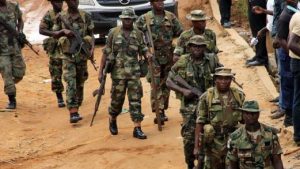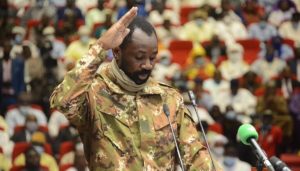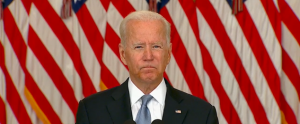
20 August 2020. France 24: The junta that deposed Mali’s president, Ibrahim Boubacar Keita, in a coup this week will install a transitional president who may be “either a civilian or a soldier”, the junta’s spokesman told FRANCE 24 on Thursday.
The Malian junta’s spokesman, Colonel-Major Ismael Wague, told FRANCE 24 that the soldiers who seized power on Tuesday are “in contact with civil society, opposition parties, the majority, everyone, to try to put a transition in place”.
A council headed by a transitional president will be “either a civilian or a soldier”, Wague said, vowing that the transition would be “as short as possible”.
At an emergency summit of the ECOWAS regional bloc earlier on Thursday, West African leaders said they would dispatch envoys to the country to help secure “the immediate return of constitutional order” and called for president Keita to be restored to office. The bloc suspended Mali in response to the coup.
“We have decided to immediately send a high-level delegation in order to ensure the immediate return of constitutional order,” Niger President Mahamadou Issoufou said at the end of the video summit Thursday.
Issoufou said that ECOWAS would “convey to the leaders of the military junta that the times of taking power by force are over in this region”.
The coup is Mali’s second in eight years.
A putsch in 2012 was followed by an insurrection in the north of the country that gave rise to a jihadist insurgency. The overthrow unleashed years of chaos in Mali when the ensuing power vacuum allowed Islamist extremists to seize control of northern towns.
After a request from Mali, a French-led military operation dubbed Operation Serval launched in January 2013 and ousted the jihadists. But they eventually regrouped and have expanded their reach during Keita’s presidency. Islamist extremist groups now also threaten neighbouring Niger and Burkina Faso.
Counter-terrorism and democracy ‘inseparable’
Keita resigned in a brief address broadcast on state TV on Wednesday, hours after troops seized him along with Prime Minister Boubou Cisse and other top officials, plunging a country already facing a jihadist insurgency and mass protests deeper into crisis.
“Mali is in a critical situation, with serious risks that a collapse of the state and institutions leads to reversals in the fight against terrorism and organised crime, with every consequence for all our community,” Issoufou warned after the summit on Thursday.
Keita’s overthrow followed months of popular protests in which ECOWAS had tried to play a mediating role.
The bloc proposed setting up a unity government, including opposition representatives, but also stood firmly by the 75-year-old Keita. The offer was bluntly rejected by the opposition.
France, the EU, the US, the African Union and the UN Security Council have all condemned the putsch and demanded the release of detained leaders.
French President Emmanuel Macron criticised the coup on Wednesday, arguing that “the fight against terrorist groups and the defence of democracy and the rule of law are inseparable”.
“To leave is to provoke instability and to weaken our fight. It is not acceptable,” the French president wrote on Twitter, calling for power to be “returned to civilians”. Macron also demanded a return to “constitutional order” and for the Malian president and the prime minister to be freed.




